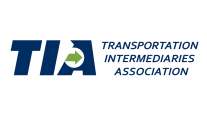Opinion: USA Today ‘Rigs’ Investigation of Intermodal Drayage
This Opinion piece appears in the July 31 & August 7 edition of Transport Topics.
This opinion piece originally was submitted to USA Today in response to its June 16, 2017, investigative article, “Rigged.” The newspaper declined to print it.
The USA Today article was, in fact, rigged against the Southern California port trucking community and the thousands of motor carriers and drivers that serve this industry, as well as the many customers that depend on their services. The Intermodal Association of North America, or IANA, would like to set the record straight on this vital component of the intermodal supply chain.

Casey
High quality, committed intermodal motor carriers and drivers transport more than 60 million shipments of international cargo every year, filling store shelves around the country with products we all consume. In California alone, there are close to 2,000 intermodal trucking companies and 50,000 drivers that handle more than 50% of our country’s imports. The circumstances of specific individuals that were portrayed in the USA Today article are unfortunate and unacceptable. However, the story deliberately misleads readers with the premise that the profiled drivers’ experiences are standard operating procedures for all motor carriers who use independent owner-operators.
Additionally, the article claims to expose the underbelly of port drayage operations and casts aspersions on the successful business model of independent contractors. There is a reason that more than 80% of the companies engaged in port drayage use owner-operators: It is an efficient and effective business model for motor carriers and contractors, and affords people the ability to be an independent businessman/woman, owning and operating their own assets and deciding with whom, when and where they do business. It also offers drivers the ability to be at home every night compared with spending days and weeks on the road.
One subject that was not addressed by the USA Today article is the very real issue of driver shortages, a fact that the intermodal industry, along with all cargo transportation service providers, is facing. This situation is projected to worsen in the coming years as the industry’s older drivers retire and companies are faced with increased regulatory burdens. A shortage of available drivers matched against an increasing volume of goods to be transported requires motor carriers to constantly improve operating conditions for drivers, not penalize or push them out of the business, as was portrayed by the article. Productivity issues such as waiting and turn times at intermodal facilities, driver pay and the quality of equipment that is being picked up are at the forefront of industry discussions and improvement initiatives.
Along with the focus on driver shortage issues, there has been a growing consciousness of environmental issues, especially air pollution. Trucking companies in Southern California have been impacted by stringent state air quality regulations since 2008, when Clean Truck programs were initiated. These rules, in part, required the replacement of older equipment, largely owned by independent owner-operators. There were several different approaches motor carriers used to help the owner-operator community make the transition to the new equipment standards. Some motor carriers chose to offer lease-purchase arrangements to their owner-operator partners as a way to help them bridge from the older asset into owning a new, compliant truck. Had it not been for the implementation of motor carrier-sponsored financial programs such as the lease-purchase, many owner-operators would not have had the resources needed to upgrade their equipment to continue working at the ports.
Another widely understood regulatory requirement for motor carriers, including owner-operators, is the need to fully comply with the federal driver hours-of-service rules. It is a safety issue for the drivers and for people sharing the roads with trucks. If there are violations, as was suggested in the USA Today story, there should be swift resolution via the proper channels through state and federal authorities. It is unfortunate that there still are drivers and managers willing to violate these important rules — but as an industry, IANA and its members are firmly committed to operations that are in full compliance with all federal, state and local laws and regulations.
IANA was not alone in the opinion that the USA Today article was written with a preconceived narrative. Our colleagues at American Trucking Associations, the California Trucking Association and the Harbor Trucking Association have weighed in with their perspectives. We support their efforts to provide a more informative and unbiased overview on the operations of port truckers.
This USA Today investigative report cannot go unchallenged. It provides a misleading depiction of a vital industry based on a few bad actors. The overwhelming majority of the more than 7,000 intermodal motor carriers and 450,000 truck drivers are in the business of providing safe, efficient and cost-effective service that contributes to the continuing growth of our economy. We are grateful for and proud of the men and women who transport freight in Southern California and all over North America every day, on behalf of the consumers and businesses that the intermodal industry supports.
IANA is the only industry trade association representing the combined interests of the intermodal freight community.




